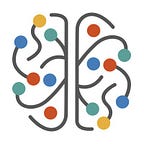Your Smartphone’s Algorithms Could Tell if You’re Depressed
Welcome to Future Health, your weekly update on the impact of AI in Health, Sport and Life Sciences.
In line with the UK government’s commitment to opening up data to drive adoption of AI, and the fastMRI open source research tools launch, this week’s theme is Data Sharing.
According to GE, a staggering 90 percent of all healthcare data comes from imaging technology, yet 97 percent of it goes unanalyzed or unused. In 2014 EMC predicted that by 2020 this data will amount 2,314 exabytes — put in perspective — a stack of iPads a third of the way to the moon (12.8B of them).
Whilst data sharing is prolific in the others industries (for good and for bad), the highly sensitive and regulated nature of patient data has often been an insurmountable barrier in efforts to collaborate. Technology is providing ethical solutions in everybody’s interest.
Read on for…
- DeepMind’s competition winning AI model — AlphaFold
- Your smartphone’s depression diagnostics model
- Our data driven future in healthcare — a must read report from the AMS.
Product News
DeepMind wins CASP13, models new proteins for life-saving drugs
DeepMind’s AlphaFold AI has yielded a hyper fast method to find the 3D structure of proteins from the sequence of amino-acid molecules they’re comprised of. Demis Hassabis on twitter:
“Proteins are essential to life. Predicting their 3D structure is a major unsolved challenge in biology and could impact disease understanding and drug discovery. I’m excited to announce that we have won the CASP13 protein folding competition!”
Mental Health & Wellbeing
Your smartphone’s AI algorithms could tell if you are depressed
Stanford research, led by Fei-Fei Li, presents a novel machine learning method for measuring the severity of depression symptoms, demonstrating 83.3% sensitivity and 82.6% specificity. This technology could be deployed to cell phones worldwide and facilitate low-cost universal access to mental health care. Huge potential significance.
Credit: Stanford
Detection & Diagnostics
Bayer & Merck get FDA breakthrough status for Chronic Thromboembolic Pulmonary Hypertension (CTEPH) detection software
CTEPH, a rare type of pulmonary hypertension, is estimated to impact around 8–40 people per million globally. If development materialises, the new deep learning based diagnosis system could aid thousands. AI technologies continue to push boundaries in healthcare.
Funding
Bios raises $4.5M to further develop its ‘neural interface’ and new ways to treat chronic medical conditions
Bios, previously Cambridge Bio-Augmentation Systems (CBAS) has raised $4.5m from a range of high-profile VCs and Angels. Read about their “USB connector for the body”.
CognitionX Research
Ethics in AI: explore the risks and opportunities facing business, society, legislators and regulators. Pre-register your interest
£395+VAT for one licence. £1995 for 10.
Sports Analytics
These smart yoga clothes promise to fix your poses at home
The clothes have built in micro sensors that take precise readings and relay information to the companion app, creating a live avatar for the user that makes it easy to compare your actions to the virtual teacher’s, all augmented by real-time voice control features.
Credit: TurningSense
Research
New UK Health Data Research Alliance
Health Data Research UK and NHS Digital are the first partners in a Research Alliance focusing on the best ways to design, use, collect, manage and analyse health data in a responsible way.
“Using health data for research has the potential to deliver solutions to the greatest healthcare challenges we face.”
Academy of Medical Sciences: Our data-driven future
in healthcare
The report outlines a set of principles, based on dialogues with the public and healthcare professionals, deemed crucial to adhere to, in order to realise the benefits of innovative technologies (i.e. machine learning) whilst maintaining trust in their use in health and social care sectors.
